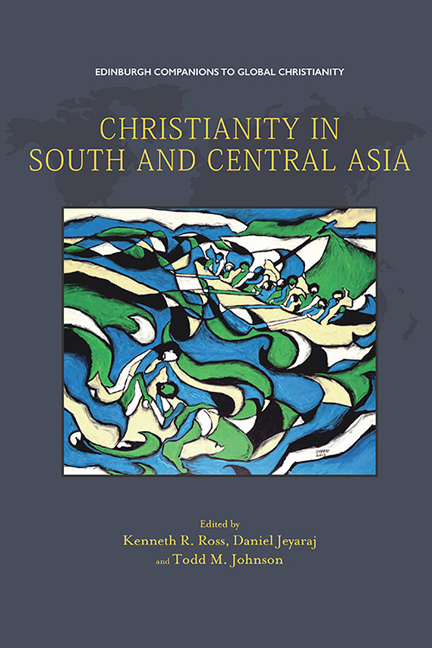Inter-religious Relations
Published online by Cambridge University Press: 30 April 2020
Summary
Inter-religious relations in South and Central Asia cannot be reduced to a ‘one size fits all’ category, because the nature of religious plurality both between and within the countries that constitute South and Central Asia is vast and varied. Therefore, any attempt to reify the religious plurality of these regions, or the responses to this plurality, into a rigid and unified category would be futile. Writing about inter-religious relations in South and Central Asia entails paying attention to specific contexts in order to discern points and patterns of convergence and divergence, from which a broader picture of inter-religious relations can be mapped.
Mapping the Religious Contexts
Though in the twenty-first century most parts of South and Central Asia attest to the presence of different religious and spiritual traditions, and in some cases even the thriving of different religious communities, the reality in most of these contexts tends to be that one religious tradition has an overwhelming numerical majority – Hinduism in Nepal and India; Islam in Pakistan, Afghanistan, Iran, the Maldives, Bangladesh, Uzbekistan, Tajikistan, Turkmenistan, Kyrgyzstan and Kazakhstan; and Buddhism in Bhutan and Sri Lanka. Overwhelming numerical majority status does not necessarily mean, however, that that religion is invariably recognised as the state religion. The situation is remarkably diverse. South and Central Asia have countries with a prescribed state religion, like Pakistan and Sri Lanka; countries that are constitutionally secular and have no official state religion, like Kazakhstan, Kyrgyzstan, India and Nepal (the last since 2006); countries that have embraced secularism constitutionally and yet have an official state religion, like Bangladesh; countries that prescribe the practice of a particular religion as a condition of citizenship, like the Maldives; and countries with a state religion that also ascribe freedom of religion to all and yet place restrictions on any form of missionary activity, like Bhutan.
One defining characteristic of this part of the world is that Christians do not constitute a numerical majority in any of these countries.
- Type
- Chapter
- Information
- Christianity in South and Central Asia , pp. 384 - 395Publisher: Edinburgh University PressPrint publication year: 2019



